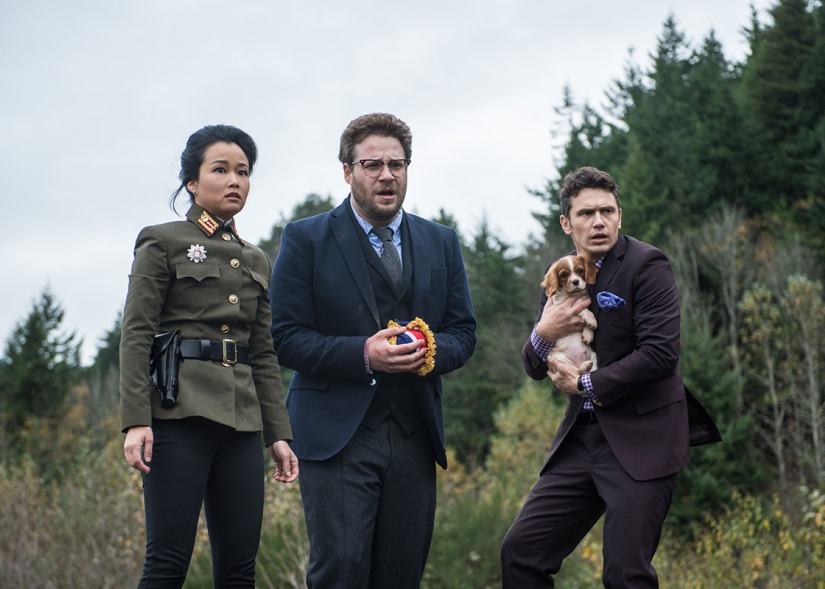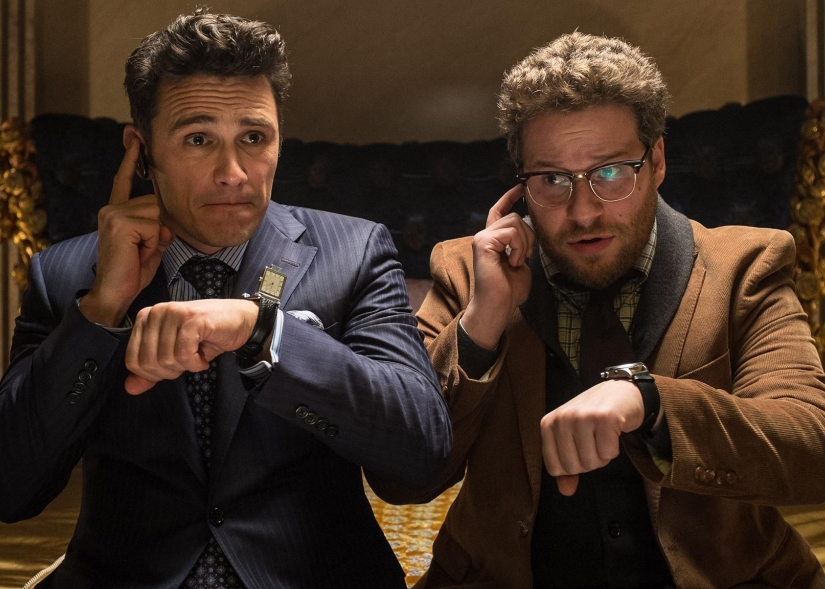What a difference a few days make.
On December 17th, Sony canceled the Christmas release of The Interview, fearing further damage and information leaks from hackers. At that time, Sony implied that they had no plans to release the film at all, including on DVD, Blu-ray, or VOD. Even symbolic screenings of Team America: World Police were canceled by Paramount out of fear of retaliation by hackers.
Numerous commentators weighed in about Sony’s decision, suggesting cowardice was the reason that they bowed to the demands of the hackers reportedly linked to North Korea. The hackers made an additional request that Sony erase all traces of The Interview‘s existence, which includes the official website, all online videos, and preventing the leak of pirated copies online.
President Obama weighed in on the matter during a year-end press conference on December 19th, saying he felt that Sony had made a mistake in canceling The Interview‘s release. “We cannot have a society in which some dictator some place can start imposing censorship here in the United States,” Obama said. “Because if someone is able to intimidate folks out of releasing a satirical movie, imagine what they start doing when they see a documentary they don’t like, or news reports don’t like. Or even worse, imagine if producers and distributors and others start engaging in self-censorship because they don’t want to offend the sensibilities of somebody whose sensibilities probably need to be offended.”
And then, after some waffling and dithering, Sony decided to uncancel The Interview, releasing it in select theaters as well as various online platforms.
The Interview played on just 331 screens across the United States. Two other high-profile Christmas new releases, Into the Woods and Unbroken, played on 2,440 and 3,131 screens, respectively; the critically acclaimed Selma opened on just 19 select screens. According to Box Office Mojo, The Interview made $2.8 million in theaters during the long weekend.
The Interview fared much better online. Deadline reported that The Interview made $15 million through online rentals and sales. Sony estimated that there were 2 million rentals or purchases made through YouTube, Google Play, Xbox Live, and the website SeeTheInterview.com. Of course, The Interview was also illegally downloaded 750,000 times on Christmas Day alone. One assumes the number of legal and illegal watches online have to be about the same by now.
While reviews of the film continue to be mixed—the symbolic 10/10 user rating on IMDB just a week and a half ago has since dipped down to 7.7/10 following the film’s release—the impact of this cultural moment is still so strangely resonant. There was no 9/11-style violence in any of the 331 theaters that screened the film, unless singing Lee Greenwood’s “Proud to Be an American” is considered an act of terrorism. And while the money made so far doesn’t cover half of the film’s budget, there is a potential for further day-and-date digital releases of certain films in the future. Maybe those films can get some free publicity from North Korea.
While the North Korean government still denies involvement with the Sony hack, they are extremely upset with the film’s release. (Earlier in the year, they declared The Interview an act of terrorism and and act of war, after all.) There have recently been country-wide internet outages, which North Korea blames on the United States, and they may not be wrong since Obama suggested there’d be some form of measured response to the hacking. On December 27th, North Korea’s National Defense Commission issued a statement calling President Obama “the chief culprit” behind the The Interview‘s eventual release. The statement continued with the following not-so-veiled racist remark: “Obama always goes reckless in words and deeds like a monkey in a tropical forest.”
In an odd example of the Streisand effect in full effect, however, the North Korean government’s months of outrage over The Interview has made its own oppressed citizens hungry for the film. Screen Rant ran a piece stating that North Koreans are currently paying as much as $50 on the DVD black market for pirated copies of The Interview. For perspective, most pirated DVDs in North Korea run about 50 cents. Foreign media has increasingly become problematic for the North Korean regime, as films and television shows from abroad are showing its citizens greater prosperity and different ways to live (i.e., not abject poverty in a totalitarian dictatorship).
But maybe the most fascinating part of this post-release phase of The Interview are the doubts about the official story of the Sony hack. Whether these suspicions are warranted or a kind of foil-hat-trutherism, a number of internet security experts feel that North Korea might not have been responsible for the hack. Even before The Interview was canceled, I recall seeing a security expert on the news suggest that an angry Sony employee was the more likely culprit. A long-term inside job makes sense simply given the amount of information released and the nature of the hack. Much of the focus from those who doubt the FBI’s story is now on someone identified as “Lena,” who worked for Sony in Los Angeles for 10 years and is associated with the Guardians of Peace.
Everything continues to become curioser, and all because of a dick-joke movie. Again, the real-world happenings around The Interview prove to be far more fascinating than the events depicted in The Interview. I can’t wait for the documentary.


